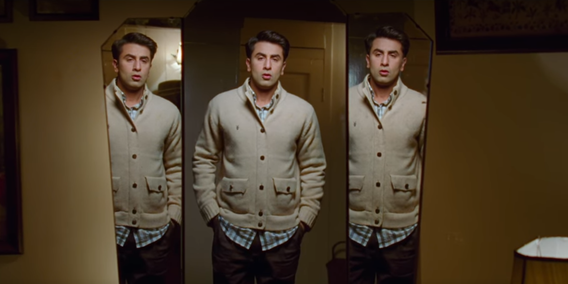Gaslighting Isn't in Your Head—It's in the Pattern
Priya came back to therapy at 36. She'd been in a relationship for fifteen years. When she walked in, she didn't feel blank—she felt numb. Numb is often how we feel when we're feeling "too much." For Priya, it was angry, overwhelmed, hurt, disappointed, happy, and relieved all at once. Because after all this time, something finally made sense. Everything did, and still, many puzzle pieces didn't quite add up.
She had just found out that her partner's affair had never really ended. It had simply become more physical. More hidden. More strategic. Her body had known it long before the proof showed up. For four years, she had lived with a quiet, constant confusion—a fog she couldn't name. And now that the truth was in front of her, she could feel her gut say, I told you so.
What Gaslighting Actually Feels Like
This is what gaslighting does. It doesn't feel right, but you cannot put your finger on it. It's a doubt that makes you feel uncertain even when evidence suggests otherwise. It's when your gut says something that's the opposite of what the "facts" seem to show.
The term "gaslighting" comes from the 1944 film Gaslight, where a husband slowly manipulates his wife into questioning her reality—convincing her that what she sees and feels isn't real. It's not just lying. It's when someone insists that your accurate perceptions are wrong, and does so repeatedly until you start believing them.
In relationships, gaslighting isn't always loud or obvious. It's not someone screaming, "You're crazy." Sometimes, it sounds like:
"You're remembering it wrong."
"You always get emotional when you're stressed."
"I told you, you just weren't listening."
"You're making something out of nothing."
When Love Becomes a Weapon
It's most dangerous when it's subtle. It's when you know they said nothing about a late-night work call, but you have been convinced that they told you. Or the work trip that they said they mentioned weeks ago, but showed up on the calendar hours before they had to leave. When it's coming from someone you love. When it's embedded inside a relationship you've built your identity around.
That's exactly how it showed up in Priya's life.
Her partner never gave her nothing—he gave her just enough to appear open. He'd tell her what city he was traveling to, maybe who he was meeting. But no flight details. No hotel names. No shared calendar invites. If she asked for more, he'd say, "Why do you need to know all that?" or "God, do you not trust me at all?"
Over time, she stopped asking. Not because she felt secure—but because she was afraid of how he'd make her feel for even asking. She silenced herself to protect the relationship.
He didn't scream or threaten—he rejected, dismissed, and acted oblivious. He would smile in the middle of an argument, a smile that suggested "here she goes again." He accused her of being oversensitive. Too emotional. Too needy. He told her she was stressed and projecting, that her work pressure was spilling into the relationship, that she needed to stop reacting to everything.
And because she was emotionally aware and willing to do the work, she believed him.
So she did what so many people do when they've been gaslit: she turned inward. She questioned herself. She tried to be better. Softer. Less reactive. She worked on herself while he worked around her. And all the while, her nervous system screamed that something was off.
Gaslighting doesn't always stand alone. In long-term dynamics like Priya's, it usually sits inside a trauma bond—a relationship that cycles between connection and confusion, affection and neglect, vulnerability and withdrawal. First described by Dr. Patrick Carnes, trauma bonding is the attachment that forms through repeated emotional manipulation, usually delivered through control, charm, apology, and intensity—on loop.
In Priya's case, it played out like this:
The Crisis: He admitted the first affair. He cried. Said he hated himself. Bought her flowers and made promises—the other woman was out of his life, it was just a mistake, it was the worst thing he'd ever done, he didn't actively seek it, it just happened. He begged for forgiveness, promised therapy, promised transformation. He also told her that when she got busy with work, he felt ignored and controlled, that she didn't understand his work, and that was his only point of connection. He told her no one had ever truly understood him like she did—that she was the most important person in his life.
The Honeymoon: She believed him. She wanted to believe him. Told herself it was his trauma, not his character. She softened. Backed off. Told herself that trust meant not checking.
The Withdrawal: He grew colder, distant. Shorter messages. Distant eye contact. Avoided posting on social media. Changed his display picture to nothing. Told her he valued his privacy. She felt it. She brought it up.
The Blame: He told her she was exhausting. Said she was projecting. Said she was too emotional and couldn't handle intimacy. She believed him again.
The Return: Then he'd come back. Plan a trip. Buy a gift. Hold her face with the same tenderness he used to. Tell her he was scared of losing her. And then... they'd start all over again.
Why Your Body Gets Addicted to the Chaos
This loop wasn't just emotional—it was physiological. When he showed affection, her brain lit up with dopamine and oxytocin—she felt loved, wanted, like she belonged somewhere. When he withdrew, cortisol and panic took over—she felt lonely, not good enough, rejected.
She wasn't addicted to him. She was addicted to relief. To the momentary return of being seen. Of being chosen—briefly—after weeks of uncertainty. That's how trauma bonds hold.
It wasn't the affair that broke her. It was what she did to herself to keep believing he wasn't lying. She taught herself not to speak up. Not to double-check. Not to expect clarity. She convinced herself that mature couples don't need daily updates, that privacy was healthy, and that needing reassurance was a flaw. She buried her own discomfort to protect his comfort.
And that's the real damage of gaslighting—it doesn't just distort your reality. It makes you complicit in the distortion. Gaslighting stops you from questioning, stops you from digging deeper for the truth, stops you from trusting yourself—because the superficial evidence is enough to be functional, because it makes you feel wanted. She worked so hard to be a good partner that she forgot to ask if she was even in a good relationship.
The Relief of Finally Knowing You're Not Crazy
In therapy, Priya said it clearly: "I feel like I'm not insane." For the first time in years, she could see it—not just what had happened, but what it had done to her. Her memory hadn't failed. Her instincts had always been accurate. She didn't need more insight. She just needed someone to believe her. Most of all, she needed to believe in herself.
This was the relief—knowing that her body wasn't lying, knowing that it wasn't all in her head, and that the years of doubt that stole her sleep, made her eat more, left her feeling exhausted without doing anything—made sense. This is a point of clarity, but a tough one to hold onto, because even though she now knows the truth, the truth hurts, and the reality of being lied to hits hard.
Gaslighting is not just about lies. It's about the slow erasure of self-trust. And when it happens inside a trauma bond, it becomes harder to see—because it shares space with feelings of love, intimacy, shared memories, small moments that feel good.
But those things don't cancel out manipulation. They just make it harder to name.
Coming Back to Your Own Voice
Healing from this kind of pattern isn't just about walking away. It's about coming back to your own voice—seeing that you have a voice and taking care of your inner workings with the same tenderness you would show a child. The one that whispered "this feels wrong" long before you had proof.
If any of this sounds familiar—you're not broken. You're not dramatic. You're not imagining it. You may just be responding, wisely and painfully, to a relationship dynamic that trained you to mistrust yourself. Gaslighting is real. Trauma bonding is real. And they feed off each other.
But so is recovery.
And it starts when you decide to believe in yourself again.








